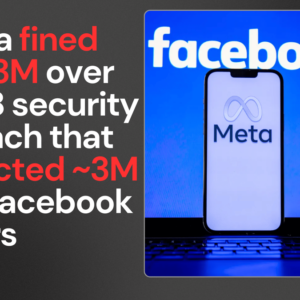Memory management is a crucial aspect of programming, particularly in JavaScript, where efficient coding can significantly enhance application performance. Proper memory management helps prevent memory leaks, reduces load times, and ensures a smoother user experience. In this post, we’ll explore key concepts of memory management and provide practical tips to help you write more efficient JavaScript code.
What is Memory Management?
Memory management refers to the process of allocating, using, and freeing memory in an application. Think of it like organizing a closet: you need to know what items you have (allocation), how long you will keep them (usage), and when to get rid of things you no longer need (deallocation).
Key Concepts
- Automatic Garbage Collection: JavaScript automatically manages memory through a process called garbage collection, which identifies and frees up memory occupied by objects that are no longer in use.
- Memory Leaks: These occur when an application retains references to objects that are no longer needed. This prevents the garbage collector from reclaiming that memory, leading to increased memory usage over time.
Tips for Efficient Memory Management in JavaScript
Here are some actionable tips to help you manage memory effectively while coding in JavaScript:
1. Avoid Global Variables
Global variables persist throughout the application’s lifecycle, making them prone to memory leaks. Keep variables scoped within functions or blocks whenever possible.
2. Use let and const Wisely
Using let and const instead of var helps limit variable scope and reduces the risk of accidental global variables.
3. Clean Up Unused Variables
Always set variables to null when they are no longer needed, especially references to DOM elements or large data structures.
let element = document.getElementById("myElement");
// Use the element
element = null; // Clear reference
4. Understand Closures
Closures can lead to memory leaks if they hold onto large objects unnecessarily. Be mindful of what data your closures capture.
function outer() {
let bigData = new Array(100000).fill("data");
return function inner() {
console.log(bigData.length);
};
}
5. Clear Timers and Event Listeners
Always clear timers and remove event listeners when they are no longer needed to prevent lingering references.
let timer = setInterval(() => console.log("Running..."), 1000);
clearInterval(timer); // Clear when done
6. Use Weak References
Utilize WeakMap and WeakSet for storing objects without preventing garbage collection if they are no longer referenced elsewhere.
const weakMap = new WeakMap();
let obj = { key: "value" };
weakMap.set(obj, "metadata");
obj = null; // Now eligible for garbage collection
7. Limit Object Creation
Avoid creating large objects or arrays unless necessary. Reuse existing structures whenever possible.
8. Optimize Data Structures
Choose efficient data structures like Map or Set over plain objects or arrays for better performance with large datasets.
const dataMap = new Map();
dataMap.set("key", "value");
9. Lazy Loading
Load only necessary data or modules when required rather than all at once to reduce initial memory consumption.
10. Profile Memory Usage
Use tools like Chrome DevTools to monitor memory usage and identify potential leaks or inefficiencies in your code.
Common Pitfalls in Memory Management
- Creating Large Objects Unnecessarily: Always assess whether a large object is truly needed.
- Retaining References: Be cautious about keeping references to DOM nodes or large data structures beyond their useful life.
- Not Clearing Timers/Event Listeners: Failing to clear these can lead to persistent references that prevent garbage collection.
Tools to Monitor and Optimize Memory Usage
- Chrome DevTools: Use the Memory panel for heap snapshots and performance analysis.
- Node.js Inspector: For server-side applications, this tool helps profile memory usage efficiently.
- MemLab: An open-source framework for detecting JavaScript memory leaks through automated testing scenarios.
Conclusion
Effective memory management is essential for writing efficient JavaScript code that performs well under various conditions. By understanding how memory allocation works and applying these tips, you’ll be better equipped to write cleaner, more efficient applications.
Feel free to share your experiences or challenges with memory management in the comments below! Happy coding!












